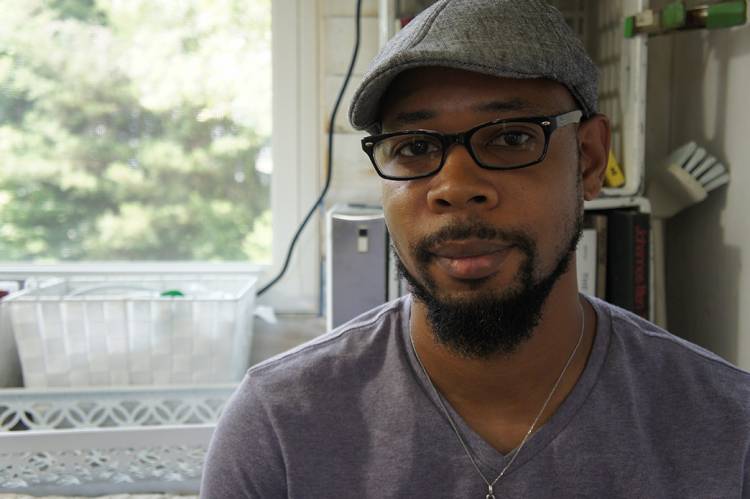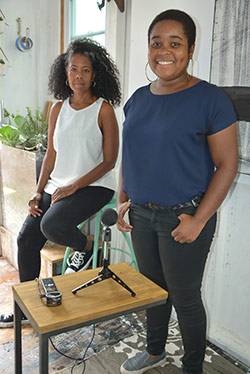CDS Exhibit Features Documents in Nicholas School Student's Work for Environmental Justice

A family portrait, part of the Center for Documentary Studies exhibit "In Conditions of Fresh Water." Image provided by Torkwase Dyson
Americans who live surrounded by raw sewage face obstacles getting their stories told. This past summer, two scholar/activists traveled in a solar powered-mobile studio through African-American communities in rural North Carolina and Alabama to collect their stories in their fight for environmental justice.
In a current exhibition of paintings, drawings, photographs and writings at Duke’s Center for Documentary Studies —In Conditions of Fresh Water—artist Torkwase Dyson and attorney/environmental scientist Danielle Purifoy, a graduate student at the Nicholas School of the Environment, explore environmental racism based on their collaborative documentary research with citizens in two North Carolina and Alabama counties.
Black towns and communities in Alamance, NC, and Lowndes, AL, counties date back to the post-Civil War era, when free blacks across the South and beyond established places of their own to distance themselves from white terrorism and to build their own economic, social, and political institutions.
The land on which they settled was often undesirable to white property interests. Many of these communities still lack access to viable wastewater infrastructure, threatening residents' health, local water quality, and capacity for future economic development.
Grassroots activists in both counties continue fighting to attain these basic services in the 21st century.
During the summer of 2016, Dyson and Purifoy worked and traveled in Studio South Zero, a mobile solar-powered artist workspace built by Dyson with recycled materials, conducting interviews and documenting these historic black communities.

The exhibition features selections of the resulting art—photographs, drawings, paintings, and writing—that was inspired by these places and their people, histories, power struggles, and victories.

Dyson’s residency at Duke has been supported with a visiting artist grant from the Nicholas School.
 The exhibit is now showing at Duke’s Center for Documentary Studies in the Lyndhurst and Kreps Galleries, 1317 W. Lynhurst St. More information can be found on the CDS website.
The exhibit is now showing at Duke’s Center for Documentary Studies in the Lyndhurst and Kreps Galleries, 1317 W. Lynhurst St. More information can be found on the CDS website.
Left, Torkwase Dyson and Danielle Purifoy. All images provided by Torkwase Dyson